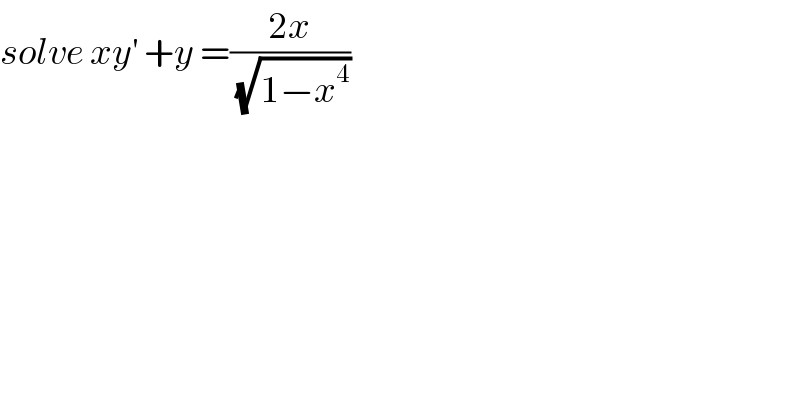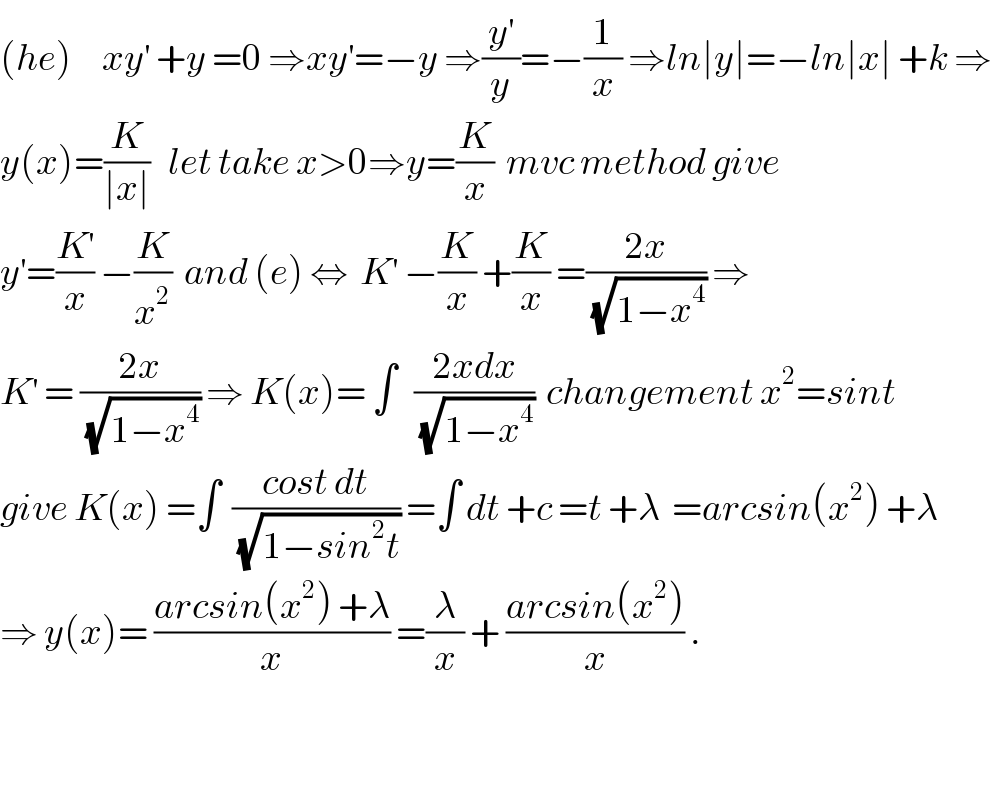
Question and Answers Forum
Question Number 50431 by Abdo msup. last updated on 16/Dec/18

Commented by Abdo msup. last updated on 16/Dec/18

Answered by tanmay.chaudhury50@gmail.com last updated on 16/Dec/18

| ||
Question and Answers Forum | ||
Question Number 50431 by Abdo msup. last updated on 16/Dec/18 | ||
 | ||
Commented by Abdo msup. last updated on 16/Dec/18 | ||
 | ||
Answered by tanmay.chaudhury50@gmail.com last updated on 16/Dec/18 | ||
 | ||
| ||